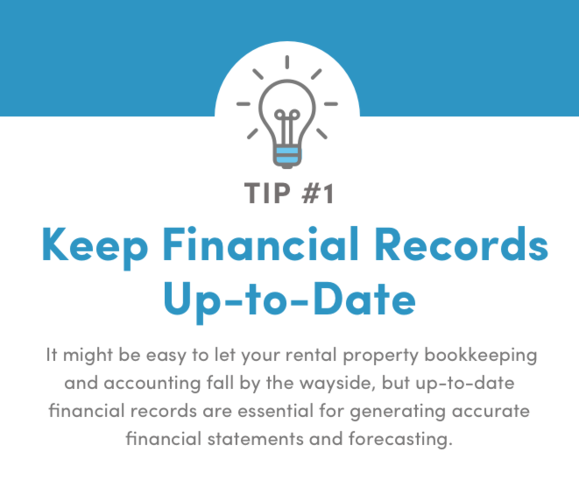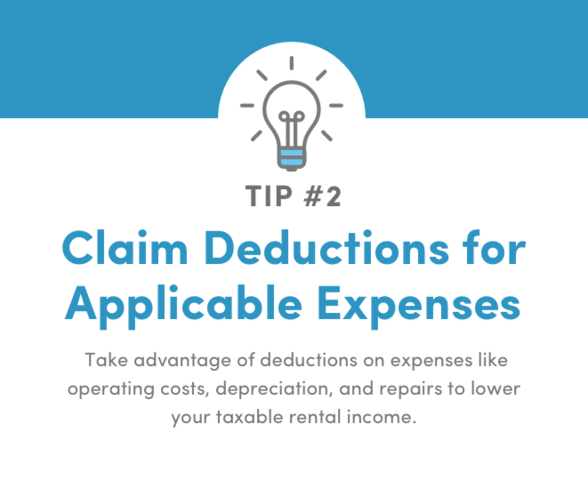Written by: Jacob Dayan
Renting out your property might seem like an easy way to make some extra income. However, it’s a legitimate business endeavor and needs to be treated as such—especially if you’ve invested in multiple rental properties. So, what does that mean for you?
It means that you’ll need to make sure your financial records are in order, so that when it comes time to report your income and file taxes, you have everything you need. Accurate, IRS-compliant financial reporting starts with proper bookkeeping and accounting. Plus, as you likely know, rental property income and expenses can be unpredictable, making the ability to use accurate financial records to forecast and plan imperative.
If you’re new to being a landlord or real estate investing, understanding these processes can seem overwhelming. However, we’re here to help with your property accounting. In this post, we’ll cover the basics of property accounting, bookkeeping, and taxes to provide you with working knowledge of these financial responsibilities. If you need help with one aspect in particular, use these links to navigate directly to that section:
It might seem tedious to implement an accounting system for just a few rental properties, but it can help you make the most of your investment and remain in good standing with the IRS. By establishing rental accounting systems early on, you’ll be able to put yourself in the best financial position moving forward.
Accounting for landlords is important because it allows you to:
Let’s dive into the specifics of property accounting so you can get your financial records in order.
While the basics of accounting are standardized, each industry has its own idiosyncrasies to consider. When it comes to rental property accounting, these are some of the unique considerations you should keep in mind:
By understanding industry-specific aspects of rental accounting, you’ll be better equipped to set up an accounting system that makes managing your business’s finances easier and more efficient.
If you have questions that are more specific to real estate accounting, read our full post on the topic.

The main difference between cash vs. accrual accounting is when you record transactions. In cash-basis accounting, transactions are recorded when money is received or paid. For example, recording rent when tenants submit their payments. In accrual-basis accounting, transactions are recorded when they are incurred, regardless of whether money has actually exchanged hands yet.
The property accounting method that you should use depends on the scale of your business. If you rent out a few of your properties, it may be easier to use cash-basis accounting to keep closer track of the actual cash you have on hand. However, if you’re operating on a larger scale with a variety of rental properties, you may be better off using accrual accounting because it gives you a clearer long-term view.
If you’re struggling to decide between cash and accrual accounting and other aspects of setting up your accounting system, you should consult an accountant for rental properties who will have the insight to guide you to the right set up.
Yes. Your business income from your rental properties should always be kept separate from your personal finances. Fortunately, it’s fairly easy to set up a separate account for your rental properties. In the beginning, it may be sufficient to have one account for a few rental properties, but you’ll be better off if you can get a separate account for each to keep everything organized.
Having separate accounts for each property allows you to keep track of the major expenses you incur by renting out that property, have a record of the rental income you’ve earned, and evaluate how the property fits into your portfolio. Plus, it will make bookkeeping and filing your taxes much easier.

Accounting and bookkeeping are two separate functions. While they are interrelated, it’s important to acknowledge the differences between bookkeeping vs. accounting so that you can have a better understanding of how your business’s finances work.
Bookkeeping encompasses the day-to-day tracking and recording of the money going in and out of your business, while accounting focuses more on the big picture—analyzing your finances, identifying issues to be fixed or opportunities for improvement, and planning for the future. Typically, these roles are filled by two different individuals, a bookkeeper and an accountant.
As with accounting, the basic processes are the same as general bookkeeping for businesses. However, there are some special considerations when it comes to rental property bookkeeping that you should keep in mind:
We’ll cover these topics in the following sections so you can get a better understanding of how these factors impact your bookkeeping.
Bookkeeping processes have come a long way since the days where everything had to be done on paper. Fortunately, now there are plenty of digital tools that can help make bookkeeping much more efficient. For the sake of your own time and keeping records, it’s highly recommended that you go digital with your rental property bookkeeping.
Plus, if your tenants pay rent and other fees online, you may be able to automate the recording of these payments so you don’t have to input them manually.
It’s important that you correctly classify income and expenses. Income for your rental properties is fairly straightforward—it includes any money that you receive from tenants. Your rental property income can include:
Depending on the specifics of how you manage your rental properties, rental income may be applied differently. However, you typically track rental income in the period that it is received.
Now, let’s review which items are typically classified as expenses for rental properties.
![]()
Tracking expenses for your rental properties is important because it helps you ensure that your rental properties are a lucrative investment. Plus, certain expenses can be deducted from your taxable income (which we’ll cover shortly), so you want to have well-maintained records to provide to the IRS.
Rental property expenses you’ll want to track include:
Use our rental property expense sheet to track your monthly expenses and income.
There are a lot of accounting software options out there that promise to make accounting a breeze. While these products can be convenient, they also leave room for error. Not to mention that it still takes time for you to manage the data.
By hiring a rental accounting professional, you can shift the responsibility to an expert who can handle all the administrative work. While they’ll be handling the day-to-day management of your finances, you’ll have the reliable financial data you need to make decisions about your investment. Working with a professional means that you’ll have the best foundation to make those decisions and more time to focus on the aspects of your rental properties that require your attention as a landlord, such as filling vacancies and coordinating maintenance.
At FinancePal, our goal is to help small businesses streamline their financial management—including rental properties. With FinancePal, you’ll benefit from:
We tailor our services to help each client determine how to meet their landlord accounting needs. Say goodbye to crunching numbers, trying to organize and track expenses from different rental properties on your own, and hours spent researching your financial and tax obligations—we have you covered.
Since you’re earning money from your rental properties, you will need to report this income when it comes time to file your taxes. Whether you identify as a sole proprietorship, LLC, or another type of business, you will also need to pay taxes on the income you make, which is why it’s important to understand the process (like when you need to file by) and your obligations like small business property taxes, income taxes, and more.
It’s understandable to be discouraged by another tax responsibility being added onto the list. It doesn’t have to be as intimidating as it sounds if you have a fundamental knowledge of rental property taxes. However, it is important to make sure that you take the right steps to file your taxes, starting with completing the correct tax forms.
You’ll use Form 1040 for your individual income tax return, but you’ll also need to report income and expenses for your rental properties. The form you’ll use to do this will depend on whether your rental properties are considered personal or real estate property rentals.
When you’re completing these forms, make sure to take your time, double-check your calculations, and provide accurate financial information. Underreporting income or claiming excessive expenses could land you in trouble with the IRS.

Some of the expenses you claim for your rental properties include:
You should keep receipts or other records of expenses you’re deducting in order to ensure that you are able to substantiate the claim should you face an IRS audit.
For more information on deducting rental property expenses, refer to the IRS guidelines, or speak with one of our tax professionals who can provide more clarity.
If you’re just learning about the ins and outs of rental property taxes, it can be a lot of information to take in, but you’re not on your own. If you still have questions about filing your rental property taxes or need assistance, one of our tax experts will be happy to help you. Our tax professionals have a thorough understanding of the tax-filing requirements for rental properties and can help you ensure that you file correctly.
Managing rental properties can be complex, but using the resources available to you can make that job a lot easier. If you have invested in rentals and are finding the financial aspects of being a landlord burdensome, let us help. Our financial management services are tailored to your needs to streamline your workflow and make sure your bookkeeping, accounting, and taxes are all in order so you can focus on making the most of your investment.

Jacob Dayan is a true Chicagoan, born and raised in the Windy City. After starting his career as a financial analyst in New York City, Jacob returned to Chicago and co-founded FinancePal in 2015. He graduated Magna Cum Laude from Mitchell Hamline School of Law, and is a licensed attorney in Illinois.
Jacob has crafted articles covering a variety of tax and finance topics, including resolution strategy, financial planning, and more. He has been featured in an array of publications, including Accounting Web, Yahoo, and Business2Community.

Nick Charveron is a licensed tax practitioner, Co-Founder & Partner of Community Tax, LLC. His Enrolled Agent designation is the highest tax credential offered by the U.S Department of Treasury, providing unrestricted practice rights before the IRS.
Read More
Jason Gabbard is a lawyer and the founder of JUSTLAW.

Andrew is an experienced CPA and has extensive executive leadership experience.
Discussed options for my business with Brian and he was very helpful in suggesting how best to handle it.
Contact us today to learn more about your free trial!
By entering your phone number and clicking the "Get Custom Quote" button, you provide your electronic signature and consent for FinancePal to contact you with information and offers at the phone number provided using an automated system, pre-recorded messages, and/or text messages. Consent is not required as a condition of purchase. Message and data rates may apply.
By entering your phone number and clicking the “Get Started” button, you provide your electronic signature and consent for FinancePal to contact you with information and offers at the phone number provided using an automated system, pre-recorded messages, and/or text messages. Consent is not required as a condition of purchase. Message and data rates may apply.
